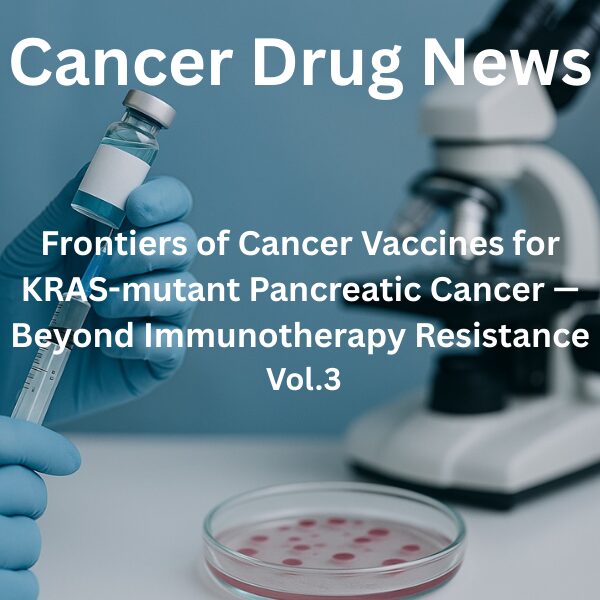Trilogy Subtitles
- Part 1: Biological Background of KRAS-mutant PDAC and Theoretical Basis of Cancer Vaccines
- Part 2: Clinical Advances in RNA Vaccines and the AMPLIFY-201 Trial
- Part 3: CAR-T Integration and Next-generation Vaccine Design
Part 3: CAR-T Integration and Next-generation Vaccine Design
Limitations of CAR-T therapy and opportunities with vaccines
CAR-T cell therapy has revolutionized hematologic malignancies, yet its efficacy in solid tumors such as PDAC remains limited. The major barriers include (1) antigen heterogeneity within tumors, (2) an immunosuppressive tumor microenvironment, and (3) poor infiltration of CAR-T cells into the desmoplastic stroma. In PDAC, dense fibrotic stroma physically hinders infiltration, while KRAS-driven signaling promotes secretion of immunosuppressive cytokines such as TGF-β and IL-10 that dampen T cell activity.
Recent work has shown that combining CAR-T cells with vaccines can overcome these barriers. Vaccine boosting reactivates CAR-T cells, which release interferon-γ, stimulating dendritic cells and driving antigen spreading. As a result, immune responses broaden to encompass additional tumor antigens beyond the primary target, overcoming antigen-loss–mediated resistance.
Clinical significance of antigen spreading
Antigen spreading refers to the secondary expansion of immune responses from the original vaccine target to additional tumor antigens. In the AMPLIFY-201 trial, 67% of patients exhibited T cell reactivity against novel tumor antigens absent from the ELI-002 vaccine following immunization. This indicates that a vaccine designed as a “public neoantigen” approach may effectively induce responses similar to personalized vaccines.
Clinically, antigen spreading is crucial because it mitigates tumor escape via antigen loss or clonal evolution. Even if tumor cells downregulate KRAS expression, secondary immune responses can sustain disease control.
Next-generation vaccine design
The next wave of cancer vaccines is moving beyond simple antigen presentation toward reprogramming the entire immune network.
- Hybrid strategies
- Public neoantigen vaccines (e.g., KRAS G12D/G12R) for broad applicability.
- Personalized RNA vaccines for patient-specific targets.
→ Their integration can combine universality with precision, maximizing efficacy.
- Novel delivery technologies
- Amphiphile technology exploits albumin hitchhiking to target lymph nodes efficiently.
- Lipid nanoparticles and advanced carriers stabilize mRNA and enhance immunogenicity.
- Enhanced adjuvant systems
- Incorporation of TLR agonists or STING agonists to amplify innate immune activation.
- Use of agents that deplete immunosuppressive cells (Tregs, MDSCs) to “heat up” the tumor microenvironment.
- Systematic combination regimens
- Vaccines plus ICIs to prevent T cell exhaustion.
- Vaccines plus radiotherapy or chemotherapy to induce immunogenic cell death and enhance antigen presentation.
- Vaccines plus CAR-T or TCR-T cells to achieve multi-layered tumor eradication.
Challenges and future perspectives
- Safety considerations: Risk of cytokine release syndrome and autoimmunity when combining CAR-T with vaccines requires careful monitoring.
- Patient stratification: Precision medicine approaches integrating ctDNA, HLA typing, TMB, and microenvironment profiling are necessary.
- Manufacturing and scalability: Personalized vaccines face hurdles of cost and production time, while public vaccines require broad applicability and validation.
- Global implementation: Standardization of mRNA vaccine platforms and international trial collaboration will be critical for rapid dissemination.
Summary
The integration of CAR-T cell therapy with vaccines represents a potential breakthrough in overcoming two central challenges of PDAC: antigen heterogeneity and immunosuppressive tumor microenvironments. By triggering antigen spreading, therapeutic benefit extends beyond KRAS to a broader repertoire of tumor antigens. Moving forward, hybrid vaccine designs combining public and personalized targets are likely to dominate the field, heralding a new era of immunotherapy for pancreatic cancer.
References (Common for the 4-part KRAS Cancer Vaccine Series)
- Nature, 2023. RNA neoantigen vaccines prime long-lived CD8+ T cells in pancreatic cancer.
- Nature, 2023. Personalized RNA neoantigen vaccines stimulate T cells in pancreatic cancer.
- Nature Medicine, 2023. Lymph-node-targeted, mKRAS-specific amphiphile vaccine in pancreatic and colorectal cancer: the phase 1 AMPLIFY-201 trial.
- Nature Medicine, 2025. Lymph node-targeted, mKRAS-specific amphiphile vaccine in pancreatic and colorectal cancer: final results of the phase 1 AMPLIFY-201 trial.
- Nature, 2023. Vaccine-boosted CAR T crosstalk with host immunity to reject tumors with antigen heterogeneity.
- Cancer Cell, 2020. Distinct clinical outcomes and biological features of specific KRAS mutants in human pancreatic cancer.
- Clinical Cancer Research, 2021. Distinct Molecular and Clinical Features of Specific Variants of KRAS Codon 12 in Pancreatic Adenocarcinoma.
- Nature, 2023. A neoantigen vaccine generates antitumour immunity in renal cell carcinoma.
- Lancet Oncology, 2023. Personalized neoantigen vaccine and pembrolizumab in advanced hepatocellular carcinoma: a phase 1/2 trial.
This article was edited by the Morningglorysciences team.









Comments